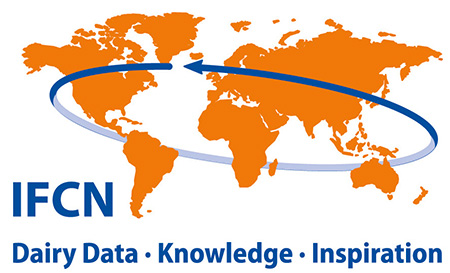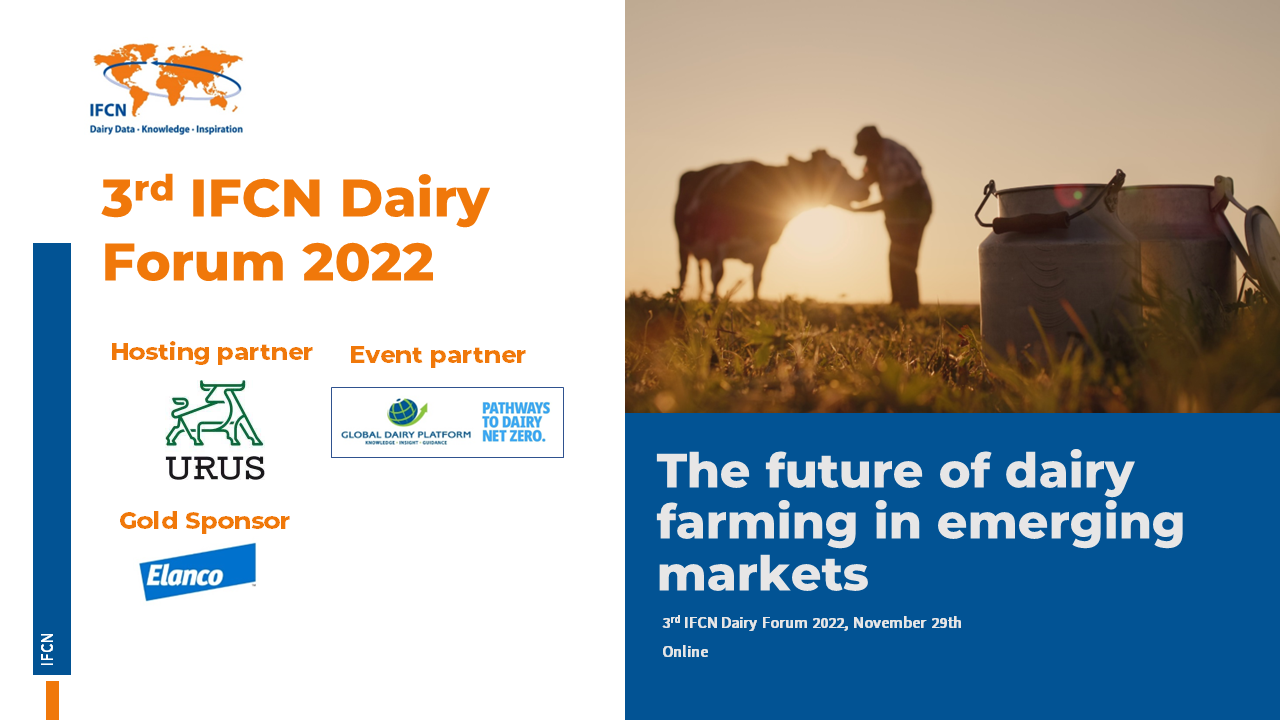Many emerging economies see increasing demand for dairy products among their population, while many exporting countries experience stalling milk production, so how will milk be produced in the future, and by whom? Participants from more than 80 countries attended IFCN’s third annual public Dairy Forum on 29 November 2022 to learn more about the drivers behind dairy development from different stakeholders. While the different initiatives have varying focuses, they all aim for an inclusive and sustainable approach.
What prevents emerging countries from producing more milk to meet local demand?
Farming systems in emerging countries are often characterised by subsistence farming and have few standardised farm management processes. The challenges these countries face are therefore manifold. These include economic factors such as the increased cost of milk production, low productivity and the usage of technology. There are also social factors such as lack of education, an ageing generation of farmers and the limited attractiveness of the sector for young people. In addition, there are environmental aspects such as climatic changes and the requirements of reducing greenhouse gas emissions worldwide.
GET NOW FOR FREE IFCN WORLD DAIRY MAP 2022
What solutions can the public and private sectors offer to next-generation farmers in emerging economies?
In his presentation, Kevin Muxlow, COO of Urus, mentioned four building blocks how farms can improve both their business economics and become more sustainable: (animal) genetics, people, management, and data & technology. The subsequent panel disucssion went into more details and proposed more ways of implementing such solutions.
Creating the right environment:
Collaboration between the public and private sectors can provide resources, access to finance and create an enabling environment for innovation, resulting in a win-win situation for farmers and businesses. Maria Zampaglione from Elanco, an animal health company, explained how her company’s shared value strategy, implemented together with the Bill and Melinda Gates Foundation, provides veterinary medicines to small and medium-sized farms in Africa. Thereby they are improving animal health on the one hand and giving her company a foothold in Africa on the other. The key to such public-private partnerships, she said, is to provide solutions and high-quality products adapted to local conditions and farmers’ needs, taking into account the whole value chain to improve the link between markets and farmers.
IFCN DAIRY FORUM 2022 – WATCH THE RECORDING
Farming systems and their management: Marcel Petrutiu from Urus, an animal genetics company, says: “Manage your farm and plan your future”. He stresses that dairy farms should be managed like businesses, with a market-oriented approach and based on data to make the right decisions and ensure that the farm can survive in the long term. Crucial to this is the transfer of knowledge through extension services, as Ugo PicaCiamarra from FAO adds: “Extension services should provide farmers not only with technical advice but also with business advice to facilitate change on the ground.” Profitability and cooperation go hand in hand, and “given the increasing importance of emerging markets and the efficiency gains that can still be made, emerging markets are a good place to focus on,” says Marcel.
Synergy effects: The profitability of the dairy farm and carbon emissions can be improved at the same time. Donald Moore from Global Dairy Platform / Pathways to Dairy Net Zero Initiative explains: “Farm income is the number one indicator of sustainability in emerging markets and if you don’t have an economic proposition you don’t have a farm longer term. In working on improving farm income, yield, productivity, reducing loss along the value chain, etc., we can also affect all these other indicators such as reducing GHG at the same time. Addressing farmers he says: “Focus on the things that are key and core to your ability to economically remain in business and then a lot of these other things fall into place along the value chain.”
Young farmers need a perspective. The demand for milk is and will be there. How they can benefit from this will depend on how they set up their farms and what solutions they take up. It is clear that connecting elements will be essential in this process. It is about new partnerships, networks, knowledge transfer at all levels and the positive effects on all aspects of sustainability.
IFCN will continue to closely monitor the farms’ developments and carry out pilot projects with its partners in order to create a good data basis.
READ THE FULL ARTICLE HERE
IFCN past events:
Do you have any questions?
Contact us

